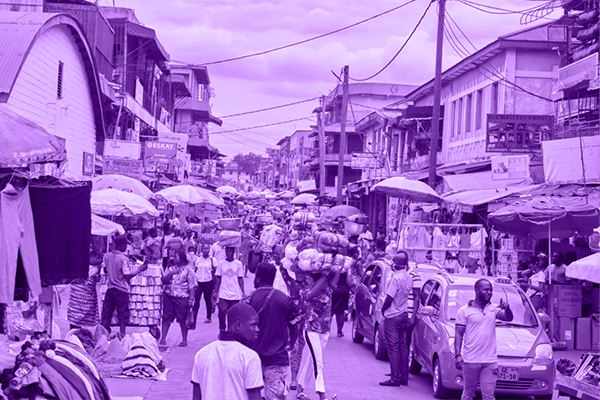Ghanaians have faced significant economic hurdles in recent years, particularly due to the impact of the Domestic Debt Exchange Programme (DDEP).
This not only led to depleted savings and concerns about pensions and banking stability but also prompted disapproval from a former Chief Justice in the Supreme Court.
As the country faces a looming presidential election, the stakes are high for those seeking progress. The current government is working to restore confidence in the economy and fulfill promises, while the opposition NDC intensifies its campaign, capitalizing on voter dissatisfaction.
Rising inflation is a major concern, with the inflation rate reaching a concerning 54.1% in December 2022, the highest in a decade. The cost of food items like ‘Gob3’ and kenkey has surged, highlighting the economic strain on Ghanaians.
In response to these challenges, the Bank of Ghana and the Ministry of Finance have taken decisive steps, including raising interest rates and adopting a stricter fiscal approach, supported by an injection of $600 million from the IMF.
Despite these measures, the recent inflation report indicates a slight easing of the inflation rate to 23.3%, bringing a sense of relief, but should not be misunderstood as a sign of declining prices.
Furthermore, the aftermath of the DDEP significantly impacted banks, causing substantial losses to their balance sheets. Non-performing loans reached an all-time high in August 2023, with 1 out of every 5 loans being either unpaid or significantly overdue for payments.
Amid these challenges, banks have favored short-term securities, leading to a shift in investment strategies and a decline in long-term securities.
The country’s economic growth, which showed promising signs after the COVID-19 pandemic, has now experienced a dip, with the growth rate reaching its lowest since 2016.
However, strategic initiatives by the Bank of Ghana and support from international partners are yielding promising results. The recent alleviation of inflation in December 2023 brings a sense of optimism, signaling the potential for a more stable economic landscape in the forthcoming months.
As the country approaches the imminent presidential election, there exists a pivotal opportunity to focus on economic policies fostering growth, inclusion, and sustainability. The insights garnered from the challenges of recent years should serve as valuable lessons, guiding the formulation of robust economic strategies that propel the nation forward.

